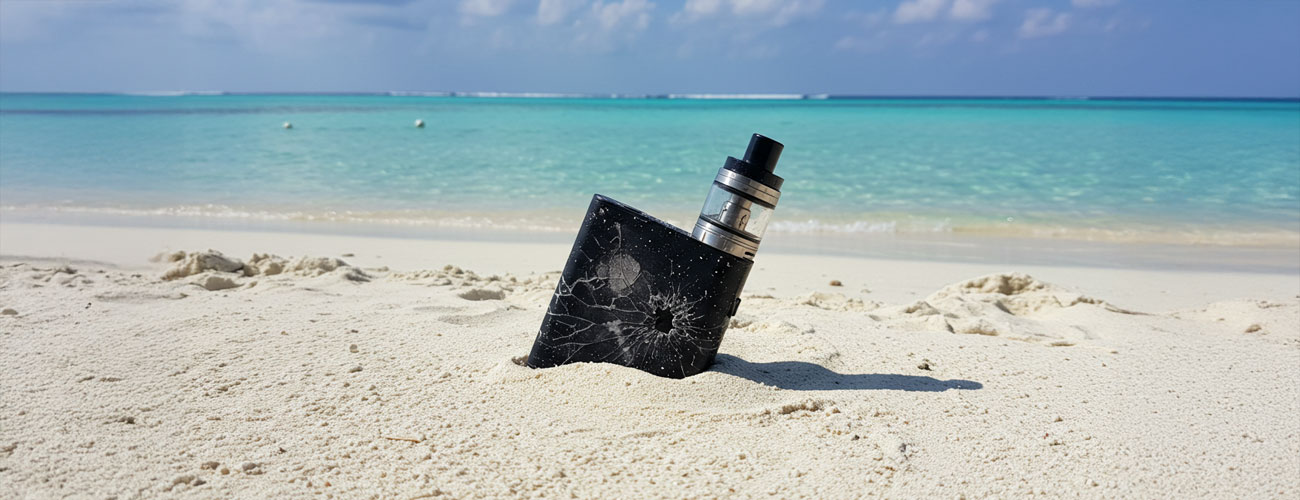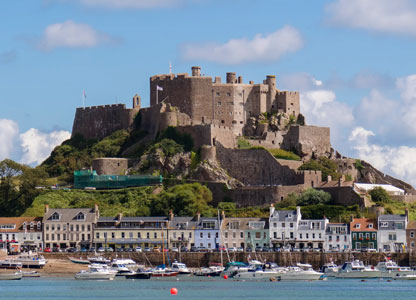The Maldives has brought a sweeping new ban on the use and sale of vapes into effect.
The ban – which was implemented on Sunday December 15 – follows recent amendments to the island country’s Tobacco Control Act. These were signed into law by President Mohamed Muizzu on November 13.
The new legislation means the sale, distribution, and use of vapes are now illegal in the Maldives. Anyone caught breaching these rules will face a hefty penalty.
Being caught vaping carries a fine of MVR 5,000 (€308). Importers will be fined MVR 50,000 (€3,000), with an additional MVR 10,000 (€617) penalty for each device.
Sellers will be fined MVR 20,000 (€1,235), plus MVR 10,000 (€617) for each device sold or distributed, and selling vapes to minors carries a heavier penalty of MVR 50,000 (€3,000).
No leeway for tourists
Homeland Security Minister Ali Ihusan confirmed the vape ban will apply to tourists to the island. “..if anyone enters the Maldives and attempts to bring vape devices, we will intercept them at the border,” he said.
“Other governments may decide to offer tourists special status, similar to the way alcohol is allowed in resorts. However, we have no intention of doing so at this time.”
Vaping is banned completely in 34 countries, according to the World Health Organisation, including Brazil, India, Iran and Thailand. Other countries including the UK and Germany have moved to outlaw the manufacture and sale of disposable vapes in particular.
In October, Muizzu announced a ban on the importation of vape products in the Maldives following a recommendation from the Maldives NCD Alliance, a group of seven Maldivians organisations and health experts.
“I have directed authorities to take all necessary measures to prohibit the importation of vaping devices and their components from November 15, 2024 and to prohibit the use, possession, manufacture, sale, advertising and free distribution of vaping devices in the country from December 15, 2024,” the President said in a social media post.
Tobacco taxes up
Alongside the ban on vapes, the Maldives has also hiked tobacco tariffs.
The Maldives NCD Alliance said tobacco has contributed significantly to the increase in non-communicable diseases in the Indian Ocean country.
It said in September: “Statistics show that 84 percent of people who die in the Maldives pass away from a non-communicable disease. Tobacco and types of tobacco are among the biggest risk factors for non-communicable diseases.”
However, it inaccurately added: “Multiple studies have shown that nicotine and other chemicals in vapes increase the risk of cancer, heart disease, stroke, and type-2 diabetes.” In fact, research shows that vaping is not linked to any tobacco-related diseases.
The UK Vaping Industry Association says vapes pose significantly lower health risks than tobacco and helps to reduce its harms, while flavours are key in encouraging smokers to switch.
The Maldives ban has faced fierce criticism from the vaping industry, which argues that preventing young people from vaping would be better achieved through regulation. Similar strict bans in other countries such as Brazil and Mexico have fuelled a dangerous and thriving black market with no impact on vaping rates.
Shop owners in the Maldives have said they were given too little notice of the ban and accused the government of seeking to benefit tobacco sellers. They warned that those who took up vaping to quit smoking would be forced back to cigarettes.
The World Health Organization (WHO) congratulated the Maldives on the ban, welcoming it as “an important initiative to arrest the worrying trend of increase in vaping, especially among young adolescents.”



